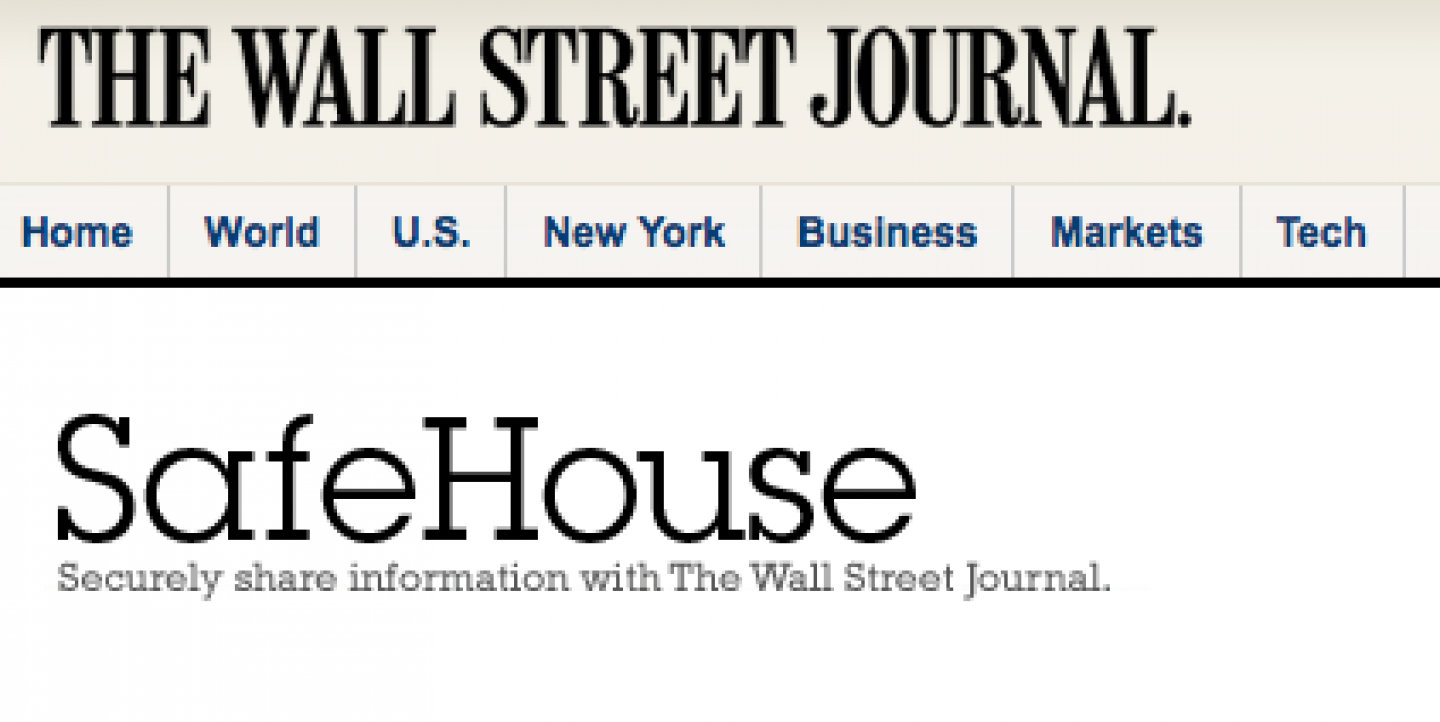The Wall Street Journal launched a new digital drop box for whistleblowers called SafeHouse. Tipsters can send newsworthy contracts, correspondence, emails, financial records or databases over a secure server to editorial staff.
The timing is good: WikiLeaks, whose founder Julian Assange is embroiled in legal battles, has not been accepting submissions for months due to “re-engineering improvements.” and WSJ's rival daily The New York Times is reportedly working on a similar project but has not launched it yet.
In a complex, 1,330-word terms-of-use statement that does not guarantee confidentiality, SafeHouse offers potential informants three options:
Standard SafeHouse, which grants parent company Dow Jones the right to use the material and any other information you provide about yourself as it sees fit with no promises of confidentiality; Anonymous SafeHouse, same as above but with the material submitted through an online form that minimizes the amount of identifying information we or others can access; and Request Confidentiality, whereby if Dow Jones agrees to enter a confidential relationship, they will “take all available measures to protect your identity while remaining in compliance with all applicable laws.”
The army of lawyers who drew up the terms are protecting company interest, but this lack of confidentiality protection is potentially harmful to whistleblowers, despite a statement by a WSJ spokesperson about the sanctity of sources.
"I don’t think that particular provision should be left lightly — preserving the ability for whistleblowers to remain anonymous is one of the more important protections that exist right now because of journalists’ roles historically in holding institutions accountable when other means of information coming out has not been possible," says Alexander B. Howard, the Government 2.0 Correspondent for O’Reilly Media. "If protections aren't guaranteed, it would be hard to see how certain kinds of fraud would come out of powerful institutions — particularly in areas of the world where releasing information is literally hazardous to your health."
For some, the site is simply a tech upgrade of how journalists have been gathering information since the dawn of newspapers.
“Getting documents via secure server is not much different than getting a document in an envelope in a parking garage or a coffee shop,” says Bill Allison, a veteran investigative reporter and editorial director at government transparency organization Sunlight Foundation. “Journalists try to get documents and information from sources; they don't publish every document they receive or even write stories based on them.”
Although there will probably be a crop of whistleblower clone sites from newspapers, they won't necessarily guarantee a more transparent future for the public and won't replace a public platform like WikiLeaks.
“If the Journal is successful, others will emulate it. What worries me is that news organizations have not been spectacular about sharing documents they obtain with the public -- this is a huge difference from Wikileaks,” Allison says. “I'd like to see papers that do this promise to make public the documents they receive, so others could use them in their research and reporting.”

